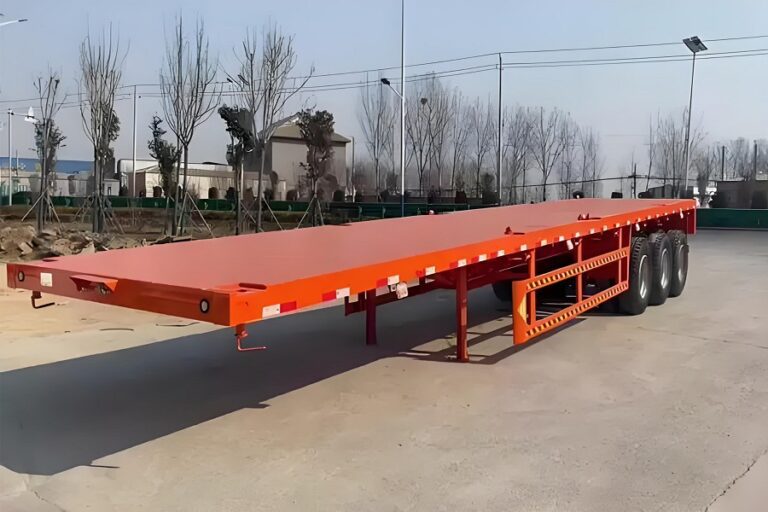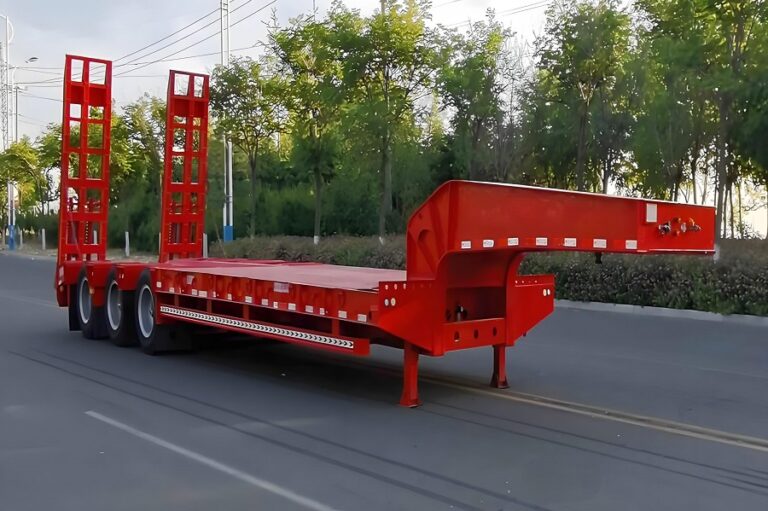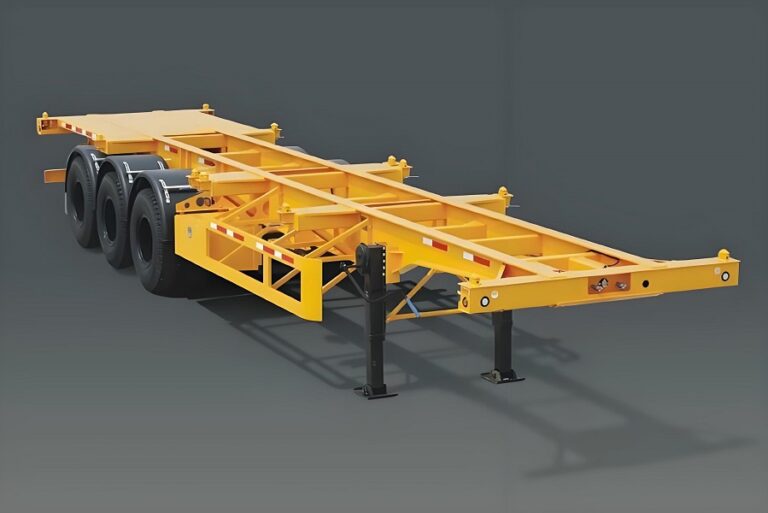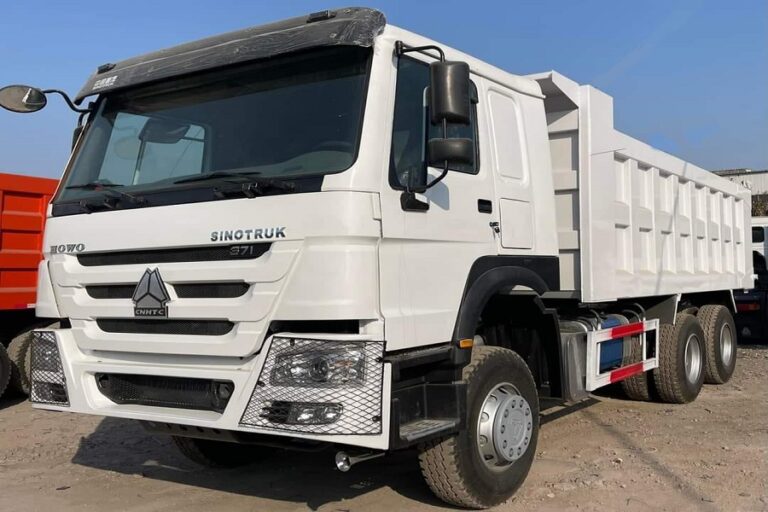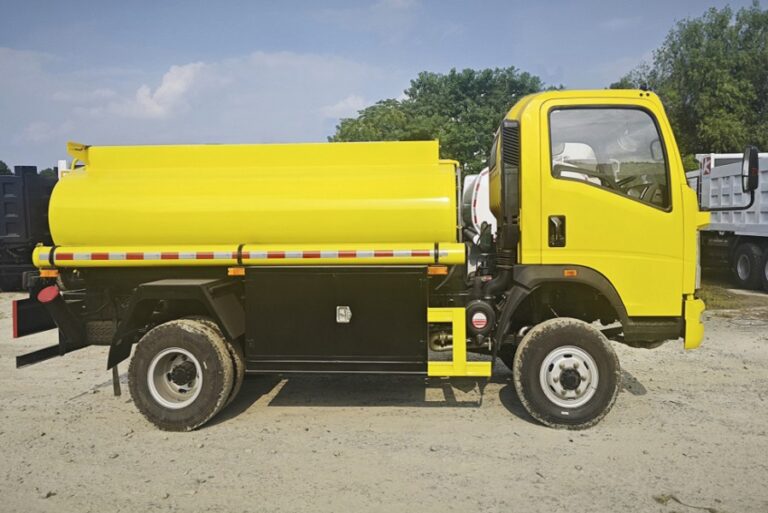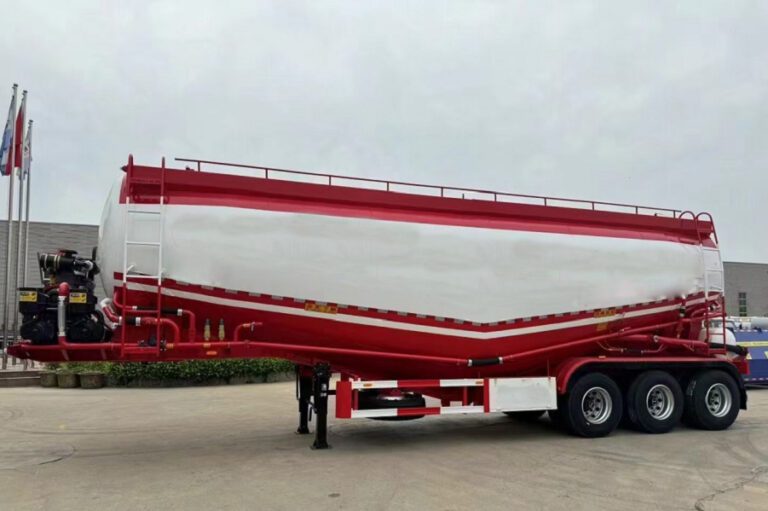Key Words: Fuel Tank Semi-Trailer, Key Features And Benefits
A fuel tank semi-trailer is a specialized type of trailer designed for transporting liquid fuels, such as gasoline, diesel, or other petroleum products. Unlike regular freight semi-trailers, fuel tank semi-trailers are specially engineered to ensure safe and efficient transportation of hazardous liquids. Below are key features and important details about fuel tank semi-trailers.
1. Tank Design
The core structure of a fuel tank semi-trailer is a cylindrical tank mounted on a chassis. The tank is typically made of high-strength, corrosion-resistant materials such as steel or aluminum, ensuring that it can withstand high pressure and external environmental factors without leaking.
- Corrosion-Resistant Materials: Considering the corrosive nature of fuel, the tank is often constructed with materials that are resistant to corrosion, which helps extend the vehicle’s lifespan and ensures transportation safety.
- External Protective Coating: Many fuel tank semi-trailers are equipped with special coatings or protective layers to prevent fuel leakage and safeguard the tank from external damage.
2. Capacity and Size
Fuel tank semi-trailers come in various sizes depending on the transportation needs. Their typical capacity ranges from 5,000 to 11,000 gallons (approximately 18,927 to 41,640 liters), though specialized models may have larger capacities. The choice of capacity depends on the distance being traveled, the type of fuel, and the requirements of the destination.
- Multiple Tank Design: Some fuel tank semi-trailers feature a multi-tank design, allowing them to transport different types of fuel or additives simultaneously. Each compartment is separate, ensuring the safe transport of various liquids.
3. Safety Features
Because fuel is highly flammable, fuel tank semi-trailers are equipped with various safety features to ensure safe transport. Common safety features include:
- Anti-Siphon Systems: These prevent uncontrolled fuel flow caused by pressure changes during unloading.
- Emergency Shut-off Valves: In the event of a leakage or emergency, these valves quickly stop the fuel flow, minimizing the risk of an accident.
- Pressure Relief Valves: These valves regulate the pressure inside the tank, preventing ruptures due to excessive internal pressure.
- Explosion-Proof Design: The tank is designed with explosion-proof mechanisms to handle extreme situations that may lead to a fire or explosion.
4. Loading and Unloading Systems
The loading and unloading systems of fuel tank semi-trailers are specially designed for efficiency and safety.
- Quick Connect Systems: These systems allow for quick and safe connection of the loading and unloading pipes, reducing the risk of leakage and operational errors.
- Automated Unloading Systems: Many modern fuel tank semi-trailers are equipped with automated unloading systems, making the process faster and safer.
- Multi-Compartment Design: Some trailers are equipped with multiple compartments, making them ideal for transporting different types of fuel or additives. This design keeps the liquids separated, preventing mixing.
5. Regulatory Compliance
Fuel tank semi-trailers must comply with strict national and international safety standards for transporting hazardous materials. These trailers are subject to the following requirements:
- Certification and Labeling: The trailer must be properly certified and labeled with information about the hazardous nature of the materials being transported.
- Regular Inspections: Fuel tank semi-trailers must undergo periodic inspections by authorized agencies to ensure they meet safety standards.
- Fire and Emergency Response Standards: The vehicles must be equipped with fire suppression equipment such as fire extinguishers and emergency spill containment tools.
6. Transportation Safety
The safety of fuel tank semi-trailers goes beyond physical design to include safety during transportation, especially for long-distance trips and complex road conditions.
- Road Adaptability: These trailers are designed to operate safely on a variety of road types, including highways, urban streets, and rough mountain roads.
- Balance and Stability: To prevent tipping during transport, fuel tank semi-trailers often feature advanced suspension systems and stability control features, ensuring safe operation during transit.
- Driver Training: Drivers operating fuel tank semi-trailers must undergo specialized training to manage emergency situations and correctly operate the loading/unloading systems.
7. Future Trends in Fuel Transportation
As the global energy landscape evolves, the fuel transportation industry is also advancing, with ongoing improvements to the design and functionality of fuel tank semi-trailers:
- Eco-Friendly Design: To reduce environmental impact, many fuel tank semi-trailers are adopting more eco-friendly technologies and materials, such as low-emission engines and environmentally friendly coatings.
- Smart Technology: With the growth of the Internet of Things (IoT), more fuel tank semi-trailers are being equipped with smart monitoring systems, allowing real-time tracking of fuel levels and safety conditions, ensuring secure transportation.
Fuel tank semi-trailers play a critical role in modern fuel distribution networks. Their efficient, safe, and regulatory-compliant design ensures that liquid fuels are transported securely and promptly from one location to another. Whether used for long-term operations or as specialized emergency vehicles, the technological advancements and safety measures of fuel tank semi-trailers are crucial for global fuel transport.
For more information or to learn about our services, please feel free to contact us. We are here to assist you with all your needs.You can also click here to know more about our products.
- Cement Tanker Trailer1 product
- Drop Side Semi Trailer3 products
- Flatbed Trailer2 products
- Fuel Tanker Trailer1 product
- HOWO Dump Truck1 product
- HOWO Fuel Tank Truck1 product
- HOWO Tractor Head1 product
- Low Bed Trailer2 products
- LPG Tank Trailer1 product
- Skeletal Trailer1 product
- Superlink Trailer2 products
- Tipper Trailer1 product
- Used Pickup Truck4 products

